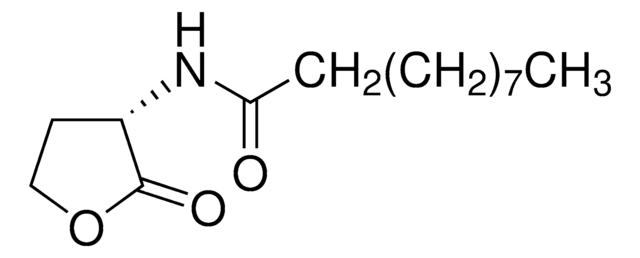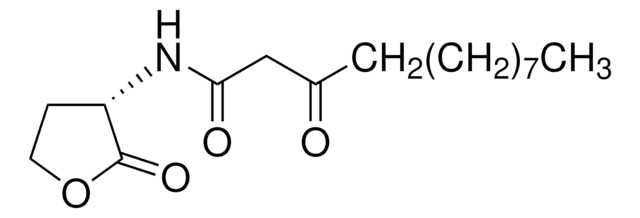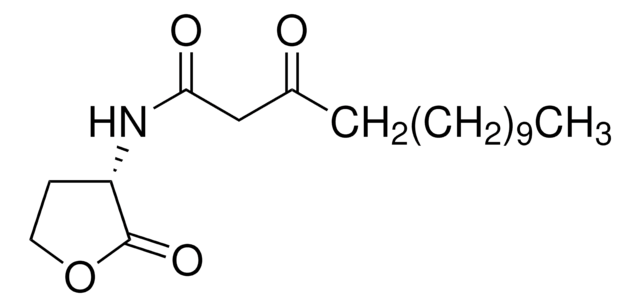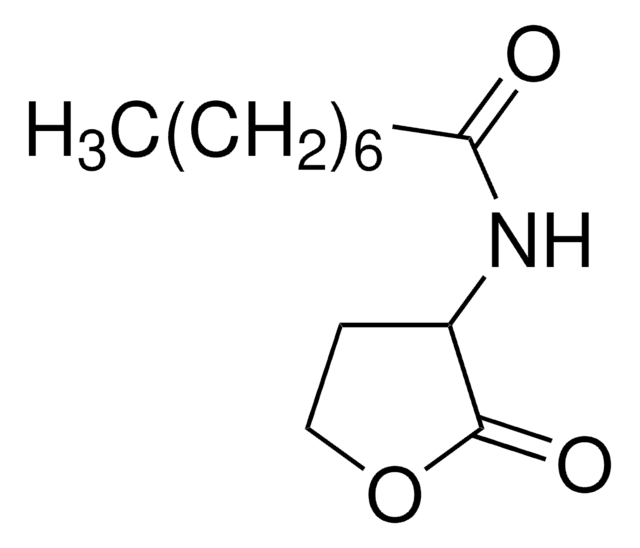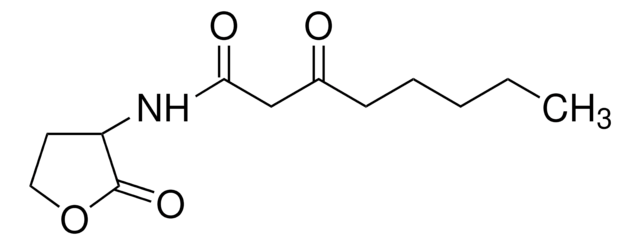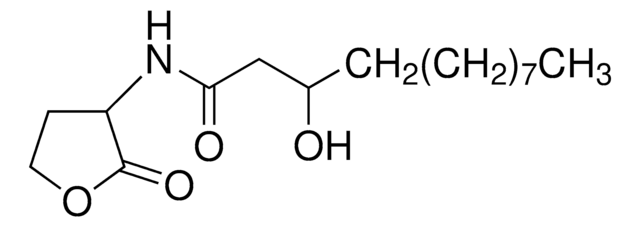68224
N-Dodecanoyl-L-homoserine lactone
≥96% (HPLC), suitable for mass spectrometry (MS)
Sinónimos:
N-Lauroyl-L-homoserine lactone, N-[(3S)-Tetrahydro-2-oxo-3-furanyl]dodecanamide, C12-HSL
About This Item
Productos recomendados
product name
N-Dodecanoyl-L-homoserine lactone, ≥96% (HPLC)
Quality Level
assay
≥96% (HPLC)
form
powder or crystals
optical activity
[α]/D -25±5°, c = 0.2 in methanol
technique(s)
mass spectrometry (MS): suitable
color
white to off-white
suitability
conforms to structure for Proton NMR spectrum
storage temp.
−20°C
SMILES string
O=C1OCC[C@@H]1NC(CCCCCCCCCCC)=O
InChI
1S/C16H29NO3/c1-2-3-4-5-6-7-8-9-10-11-15(18)17-14-12-13-20-16(14)19/h14H,2-13H2,1H3,(H,17,18)/t14-/m0/s1
InChI key
WILLZMOKUUPJSL-AWEZNQCLSA-N
Biochem/physiol Actions
hcodes
Hazard Classifications
Aquatic Chronic 4
Storage Class
11 - Combustible Solids
wgk_germany
WGK 3
flash_point_f
Not applicable
flash_point_c
Not applicable
Certificados de análisis (COA)
Busque Certificados de análisis (COA) introduciendo el número de lote del producto. Los números de lote se encuentran en la etiqueta del producto después de las palabras «Lot» o «Batch»
¿Ya tiene este producto?
Encuentre la documentación para los productos que ha comprado recientemente en la Biblioteca de documentos.
Los clientes también vieron
Nuestro equipo de científicos tiene experiencia en todas las áreas de investigación: Ciencias de la vida, Ciencia de los materiales, Síntesis química, Cromatografía, Analítica y muchas otras.
Póngase en contacto con el Servicio técnico


